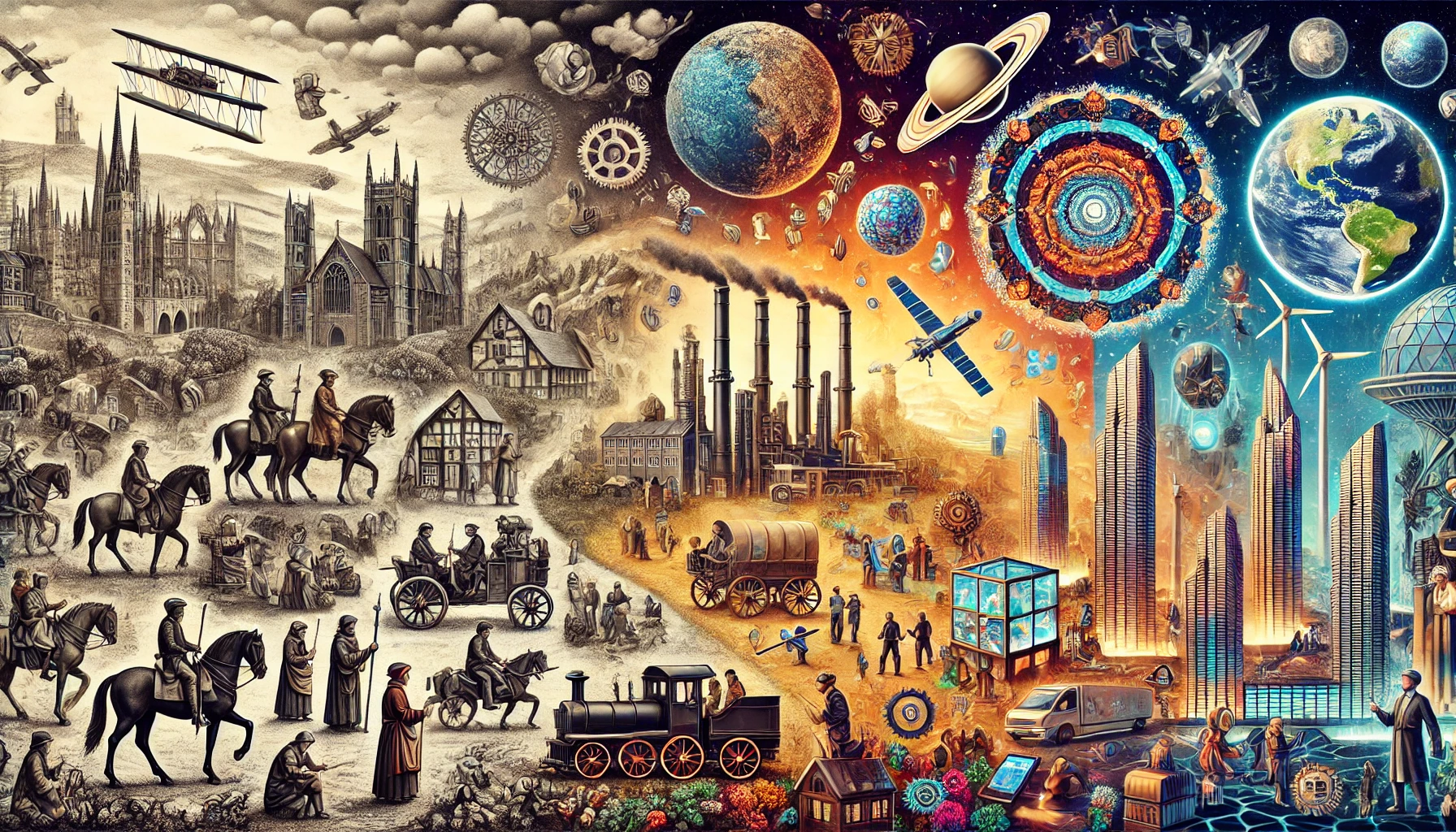
I asked ChatGPT for a proposal to name the centuries starting from the year 1000, based on the main cultural and historical characteristics of each.
Leaving aside the former, on which there is full consensus among historians, the future prospects envisioned by artificial intelligence today seem interesting — and sometimes questionable as we move away from the present.
PAST
1000-1099: Romanesque Century
Characterized by the development of Romanesque art, with the architecture of great cathedrals and abbeys.
1100-1199: Century of the Crusades
Era marked by the Christian Crusades in the Holy Land, which influenced culture, trade and cultural exchange.
1200-1299: Gothic Century
Distinguished by the rise of Gothic art, with the soaring architecture of cathedrals and the beginning of European universities.
1300-1399: Century of Medieval Crisis
Dominated by the Black Death, social uprisings and the decline of the feudal system.
1400-1499: Renaissance Century
Era of cultural, artistic and scientific renaissance, with figures such as Leonardo da Vinci and Michelangelo.
1500-1599: Reformation Century
Marked by the Protestant Reformation, the Council of Trent and European colonial expansion.
1600-1699: Baroque Century
Characterized by Baroque artistic expressions and the consolidation of absolutist states.
1700-1799: Age of Enlightenment
Dominated by the Enlightenment, scientific revolutions and the French Revolution.
1800-1899: Industrial Age
Marked by the Industrial Revolution, technological progress and social transformations.
1900-1999: Modern Century
Distinguished by scientific innovation, two world wars, and the advent of globalization.
PRESENT
2000-2099: Digital Century
Characterized by the technological revolution, artificial intelligence, and climate change as global challenges.
FUTURE
2100-2199: Century of Sustainability
An era in which humanity could dedicate itself to mitigating the effects of climate change, adopting sustainable lifestyles, and redefining its relationship with the environment. Innovations in renewable energy, circular economy and new global policies will be central.
2200-2299: Century of Interplanetary Expansion
With advances in space exploration, this century could mark the beginning of permanent settlements on other planets, such as Mars, and an interconnection between Earth and other celestial bodies. It will likely be an era of redefining human identity on a cosmic scale.
2300-2399: Century of Technological Symbiosis
It could represent the total integration of humanity and advanced technology, with artificial intelligences and biological systems fused to enhance human capabilities. Ethics, philosophy and the very concept of “being human” will be at the center of cultural debates.
2400-2499: Century of Universal Unity
A period when humanity could overcome planetary divisions to create an interconnected civilization on a galactic scale. Interactions with possible extraterrestrial life forms or the expansion of collective intelligence will be central.
2500-2599: Century of Evolutionary Transformation
Characterized by continued biological and technological evolution, with genetic engineering and manipulation of matter at the quantum level that could reshape life itself. Humans could become a post-biological species.
2600-2699: Century of Metaconsciousness
A time when understanding of the universe and consciousness will reach new depths. A “meta-civilization” could emerge capable of transcending physical and temporal limits, exploring as yet unknown dimensions of reality.







